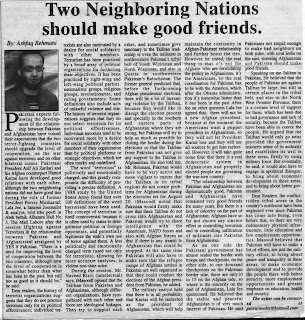Social media has brought various religious and ethnic groups across the world closer together. Nowhere is this more apparent than in the Arab world, as demonstrated by the recent protests. Activists in this part of the world maintain that their motives are not sectarian. Indeed, the protests themselves show people of different backgrounds coming together for a common cause: change.
In Manama, a campaign for political change launched on blogs and on Facebook proclaimed: "No Sunni, No Shi'ite. Only Bahraini." In Syria, protesters are rejecting sectarian strife and focusing on oneness, shouting: "Not Kurdish, Not Arab. We Want National Unity." This is in addition to an online campaign started by activists with the slogan: "Are you Muslim or Christian? I am Syrian", which grew to nearly 9,000 members. And then there is the Facebook launch of a Syrian code of honour, condemning all forms of discrimination against fellow citizens, with around 5,000 members.
Many Arab regimes banned the creation of political parties, and limited the right to associate or create civil rights groups. This meant that there was little space where religious, ethnic and cultural groups could meet and interact. Some of the ruling regimes also marginalised and oppressed religious and ethnic minorities – from the oppression of the Amazigh in North African countries by prohibiting them from speaking their native language or giving traditional Amazigh names to their children, to banning Christians from rebuilding their churches, or depriving Kurds of their nationality, as well as other measures.
But social media has helped such groups discover one another, and break the psychological barrier of fear between them, which some regimes had constructed. Social media is a “first step” toward engagement with what the regimes qualified as “the other”. After all, it is easier to begin a conversation with someone with a different background sitting behind a computer screen.
It is also a step toward taking this change to broader society.
In Lebanon too, online groups that oppose sectarianism and discrimination in society have appeared, creating a space that has brought people from various sects and regions closer together.
As the protests spread across the Arab world, activists in Lebanon began to unite with the goal of "ousting the sectarian system." These activists managed to reach around 15,000 people through a Facebook group entitled, "In favour of ousting the Lebanese sectarian system – towards a secular system." The group is comprised of youth from different sects, regions and cultural backgrounds. On the group’s Facebook page, activists engage in extensive discussions about the existing system and about the system they long for. The leaders of this group have even organised many public demonstrations, including one that numbered 21,000 people, all demanding the end of the sectarian system in Lebanon.
Social media is fast proving to be a tool that creates awareness of a particular issue amongst large numbers of people. A few clicks, and you can spread the world with your message and galvanise like-minded individuals to interact and engage in a common cause.
In the past five years, many such causes have surfaced, brought on by multi-religious, cultural and political groups. For instance, proponents of gay rights, through their online presence, were able to create more awareness of their plight in Lebanon.
This movement attracted support from many youth across religions, sects and regions, with the aim of removing Article 534 from the Lebanese Penal Code, which identifies homosexuals as criminals, and granting a person the right to choose his or her sexual orientation. The online presence of this movement and the success of its outreach demonstrate how social media can provide youth of different backgrounds a platform to engage in fruitful interaction for a common cause.
Another example of social media’s ability to bring people together is the Lebanese Women's Right to Nationality and Full Citizenship, a cause that brought together over 20,000 members on Facebook to support all Lebanese women’s right to pass on their nationality to their children. People from all religions were able to meet online and discover that those of different faiths can and do think just like they do.
This kind of activity reinforces a sense of social cohesion and helps people focus on what they have in common, despite differences in their backgrounds. It has also proven to be an effective tool in the hands of people relegated to society’s margins, who are now able to voice their concerns and gather support from all segments across the country



